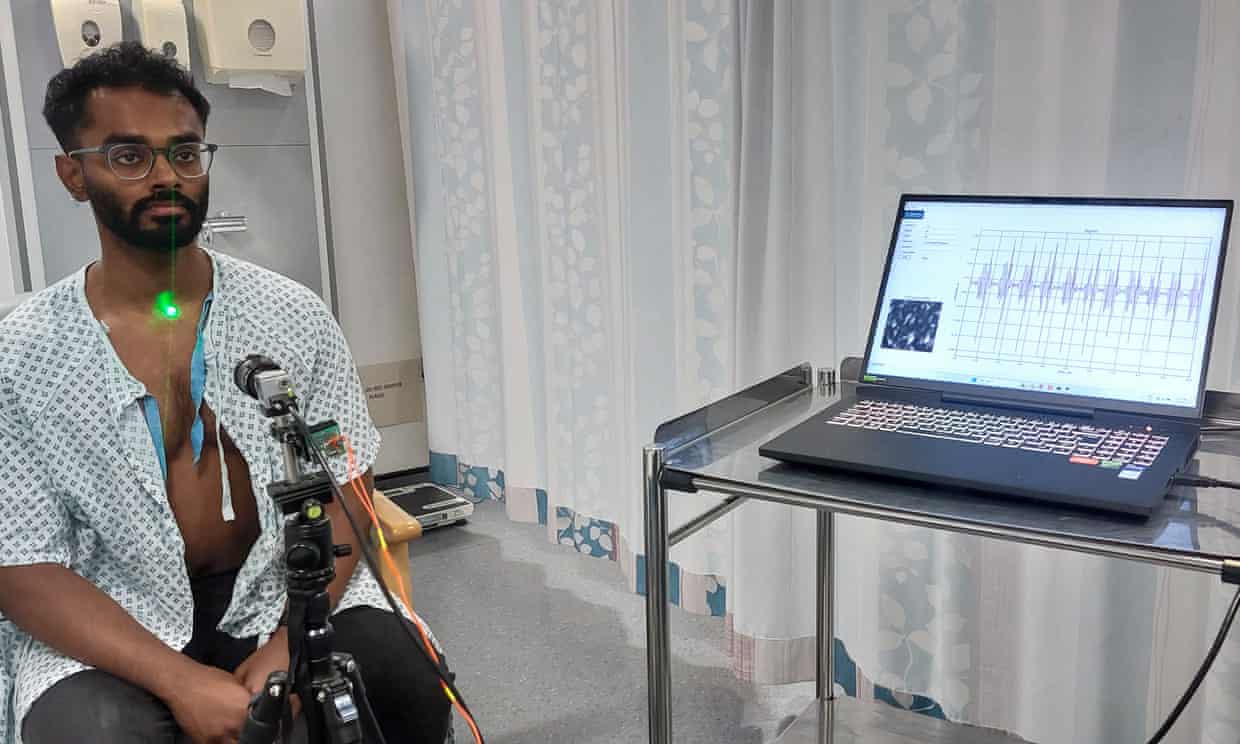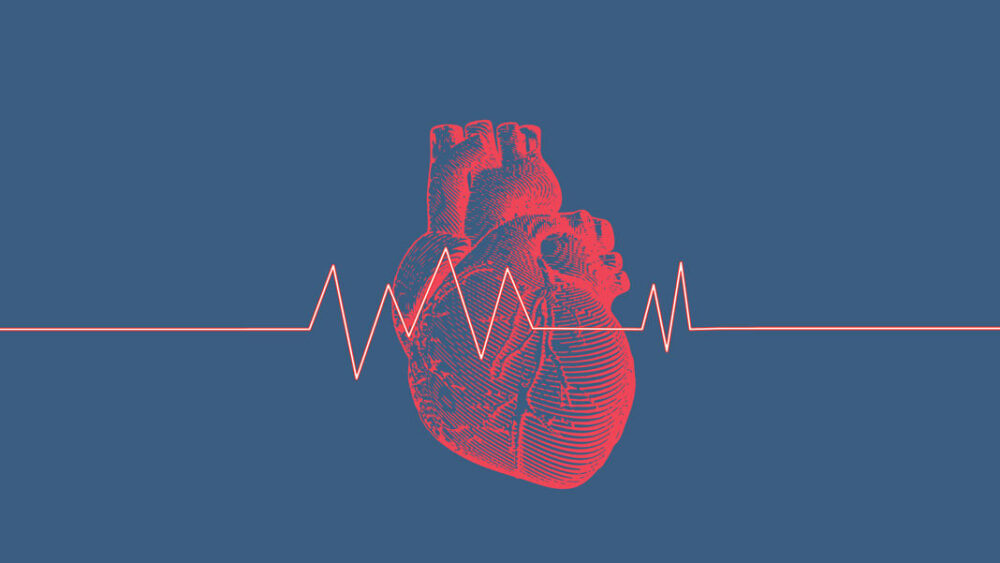Medical technology is in for a significant upgrade thanks to a newly developed AI laser capable of accurate heart readings. This development comes from researchers at Glasgow University, UK, who claim that their new laser could transform how we monitor health.
This laser camera uses AI and quantum technology to remotely detect a person’s heartbeat and identify indicators of potential cardiovascular illnesses through their throat.

Professor Daniele Faccio of the university’s Advanced Research Centre said: “This technology could be set up in booths in shopping malls where people could get a quick heartbeat reading that could then be added to their online medical records. Alternatively, laser heart monitors could be installed in a person’s house as part of a system for monitoring different health parameters in a domestic setting. ”
Additional devices could encompass monitors designed to observe irregularities in blood pressure or subtle alterations in gait, serving as an early indicator of the onset of Alzheimer’s disease.
The ability to monitor a person’s heartbeat remotely holds significant value, as detecting irregularities such as murmurs or abnormal heart rates (either too fast or too slow) could serve as a warning sign, indicating the risk of a stroke or cardiac arrest, as mentioned by Faccio.
Doctors are still using stethoscopes to monitor heartbeats to this day, something that was invented in the early 19th century. But it requires training to be used properly and there is a chance of the heartbeat signals getting muffled if it’s pressed too hard. It also struggles to identify background murmurs, which are crucial for detecting defects in the heartbeat.
But this is no longer an obstacle for the AI laser system. The system is powered by high-speed cameras that can record images at a right as high as 2000 frames per second. They shine a laser beam onto the skin of the individual’s throat, and the reflections are harnessed to accurately gauge the nuanced movements occurring as the main artery expands and contracts during blood circulation. These subtle changes manifest on a scale of a few billionths of a meter.
While the precision is remarkable, solely tracking these minute fluctuations would not be sufficient for monitoring a heartbeat. This is because larger movements, such as those resulting from breathing, occur on a person’s chest and could potentially overshadow signals from their heartbeat.
Faccio adds: “That is where AI comes in. We use advanced computing systems to filter out everything except the vibrations caused by a person’s heartbeat – even though it is a much weaker signal than the other noises emanating from their chest. We know the frequency range of the human heartbeat, and the AI focuses on that.”
This helps healthcare workers compare the patient’s heartbeat not against the statistical average of the general population, but against the unique cardiac behavior of the patient themselves. This is highly useful for detecting potential changes in the heart and precisely identifying specific defects, as emphasized by Faccio.
Faccio’s team has founded a health-related startup company called LightHearted AI, currently in the process of seeking venture capital to further advance the development of their devices.
Faccio said: “This system is very accurate. Even if you share a house with 10 people, it could pinpoint you from anyone else just by shining a laser on your throat and analyzing your heartbeat from its reflection. Indeed one other use of the system is for biometric identification.”
Last but not least, Faccio has said that his team hopes to mobilize this technology by 2024 and its primary use will be measuring heartbeats quickly and accurately outside of hospitals or GP surgeries.






